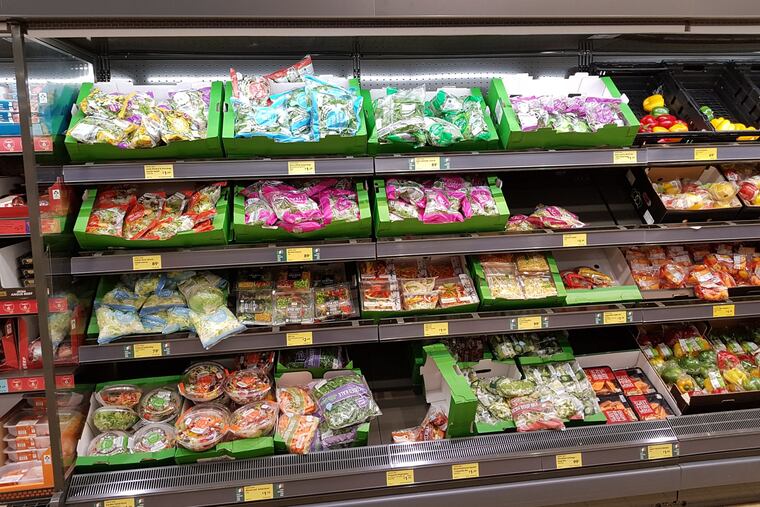Check your kale, spinach, and collard greens. Some bags recalled due to listeria risk.
The Maryland-based Lancaster Foods has voluntarily recalled seven batches of kale, spinach, and collard greens, bags of which were sold in Pennsylvania and New Jersey.

If you have any bags of kale, spinach, or collard greens in your fridge, take a look at the brand and best-by date: Some expired batches have been recalled due to potential contamination.
The Maryland-based Lancaster Foods has voluntarily recalled seven batches of Giant, Lancaster, and Robinson Fresh brand greens because of listeria risks. A random sample of one bag of chopped kale tested positive for the germ after being collected by the New York Agriculture and Markets Food Safety Division, but the U.S. Food and Drug Administration said no illnesses have been reported.
Still, consumers should throw out and not consume any of the following products — which were distributed in Pennsylvania and New Jersey — if they have them in their fridge (UPC codes are usually under the barcode on product packaging):
Giant brand curly leaf spinach, best if used by April 29 (UPC code: 6-88267-09813-0)
Giant collard greens, best if used by May 1 (UPC code: 6-88267-05311-5)
Robinson Fresh collard greens, best if used by May 1 (UPC code: 0-95829-60006-7)
Robinson Fresh kale greens, best if used by May 1 (UPC codes: 0-95829-60016-6; 0-95829-60015-9)
Lancaster chopped kale, best if used by May 1 (UPC code: N/A)
Lancaster spinach, best if used by April 29 (UPC code: 8-13055-01145-3)
Retailers and distributors have been told to remove the products from their inventories if they have not already.
Listeria is an infection that is most often caused by eating food contaminated with the bacteria Listeria monocytogenes.
Similar to other food-borne ailments, listeria can cause mild symptoms, such as fever, abdominal pain, nausea, diarrhea, severe headache, and stiffness. Yet it can be particularly dangerous for newborns, as well as people who are 65 and older, have weakened immune systems, or are pregnant. About 20% of infections during pregnancy result in fetal loss, according to the Centers for Disease Control and Prevention. People with invasive listeria usually develop symptoms one to four weeks after eating contaminated food.
Overall, the chance of contracting listeria remains relatively rare: Across the country, 1,600 people get listeria each year.
No other Lancaster Foods products have been recalled due to potential contamination.
“The safety and integrity of products distributed by Lancaster Foods are a top priority and taken very seriously,” the recall notice read. “Lancaster Foods regrets any inconvenience and concern this recall may cause.”